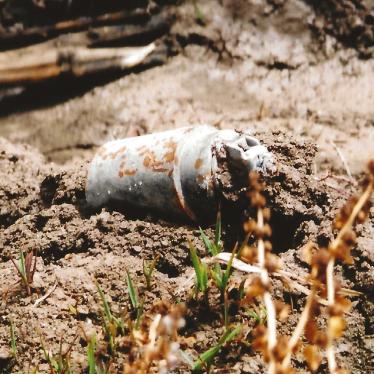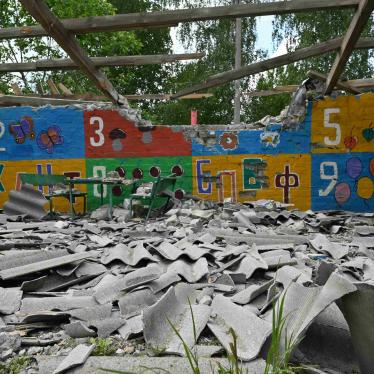President Luiz Inácio Lula da Silva often expresses concern over excessive military spending and shows an interest in leading peace talks to bring about an end to the Russia-Ukraine conflict. He did so again on July 17 in Brussels, at a summit of Latin American and Caribbean presidents with their counterparts at the European Union.
President Lula might have used his political capital more wisely by criticizing United States President Joe Biden’s recent decision to send cluster munitions to Ukraine, a move that could put more Ukrainian civilians’ lives at risk for years to come. Lula’s voice is notably absent from the global outcry over this move. But denouncing the transfer and use of cluster munitions might have put the spotlight on Brazil’s own role in producing and transferring these weapons, which kill and injure civilians when they are used and leave unexploded submunitions that pose a danger long after wars end.
Since Russia’s full-scale invasion of Ukraine in February 2022, Human Rights Watch has extensively documented that Russian armed forces have repeatedly used cluster munitions in attacks that have caused hundreds of civilian deaths and injuries, including of children, damaged civilian infrastructure, and contaminated agricultural land. And a recent Human Rights Watch report shows that Ukrainian armed forces used cluster munitions in one city and its environs, causing civilian deaths and injuries.
The cluster munitions that Russia and Ukraine are using now are contaminating the country with explosive submunitions that will destroy lives and livelihoods for years, until they are cleared and destroyed.
More than half the world’s countries—123—have signed or ratified the 2008 Convention on Cluster Munitions, which prohibits any production, use, transfer, and stockpiling of the weapons. The treaty also requires destruction of stocks, clearance of land contaminated by cluster munition remnants, and assistance to victims.
Ukraine, Russia, and the United States have not ratified the convention. Nor has Brazil.
Brazil has produced cluster munitions in the past and has not taken any steps to halt future production of these weapons. A coalition of countries led by Saudi Arabia used Brazilian-made cluster munitions in Yemen in 2017, according to research by Human Rights Watch and others. For instance, the coalition’s attacks on the northern Yemeni city of Saada using Brazilian cluster munitions killed two civilians and wounded at least six, including a child.
Brazil’s Congress in June shelved a bill that would have banned Brazilian use, production, and trade of cluster munitions. One legislator made no effort to hide the cynical reasoning, saying that the bill would have precipitated a “loss of income for the Brazilian war industry.”
If President Lula is truly concerned about the devastation of what he calls the “war machine,” he should end Brazil’s production of cluster munitions and cooperate with legislators to ratify the Convention on Cluster Munitions without delay.











